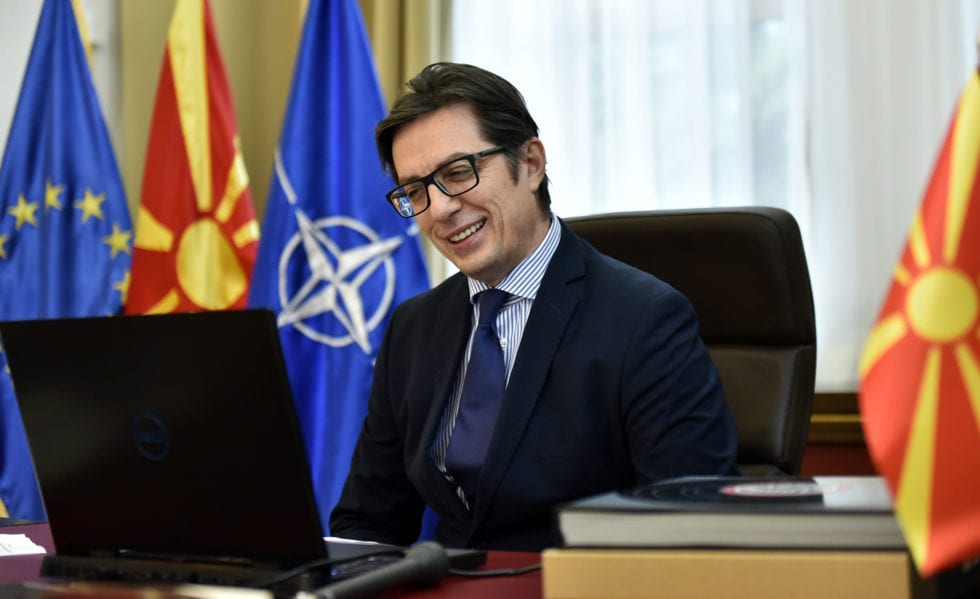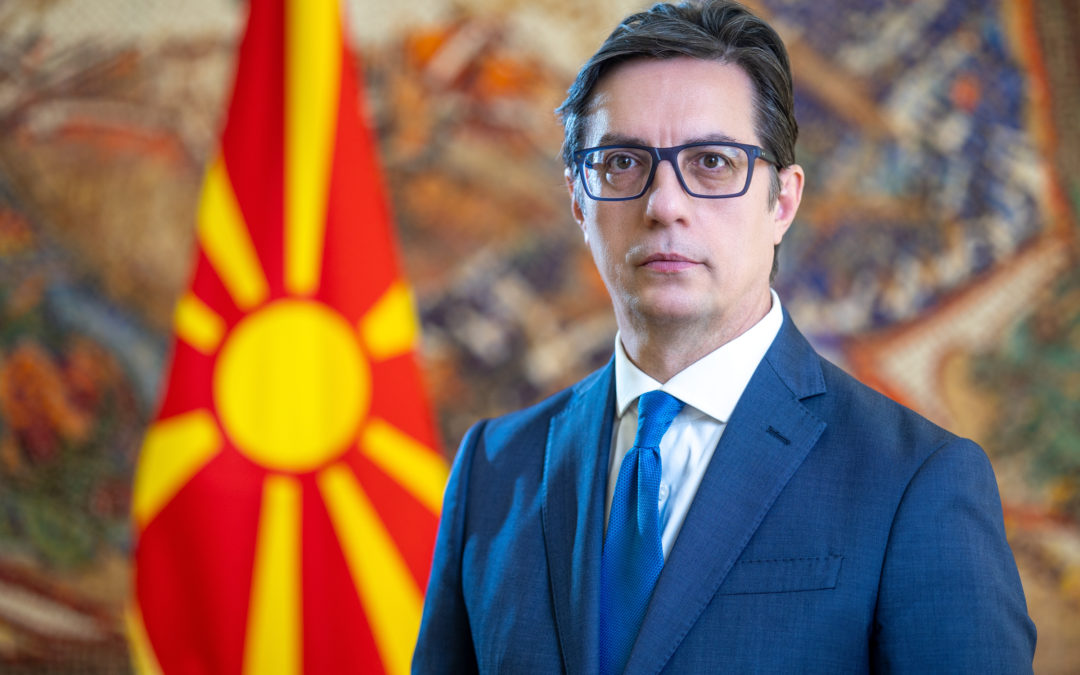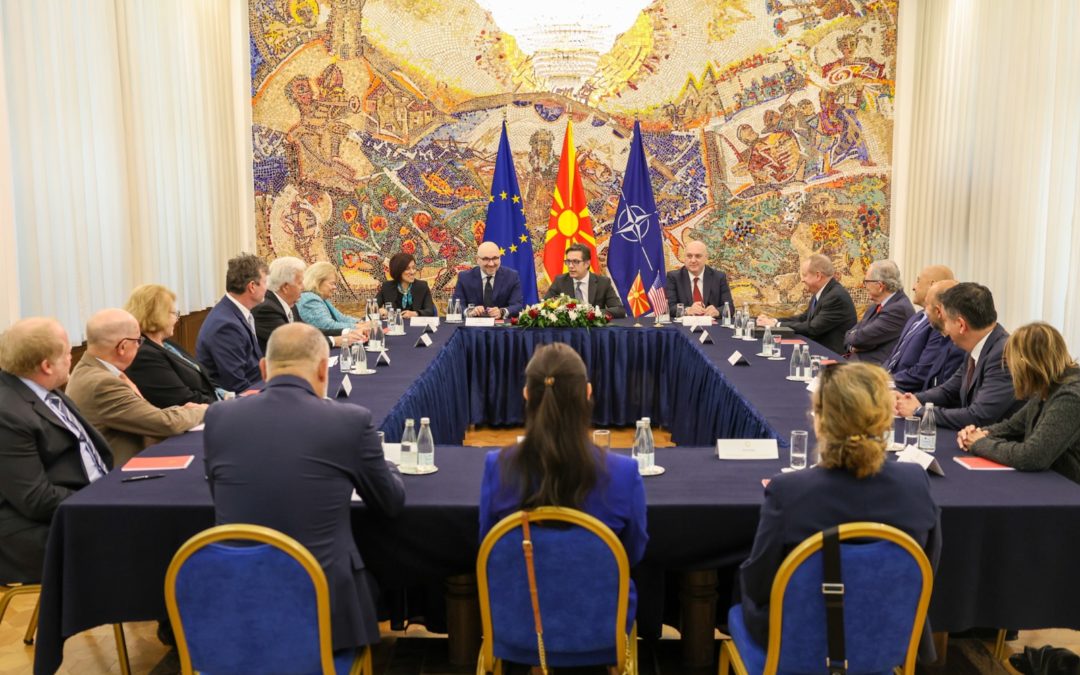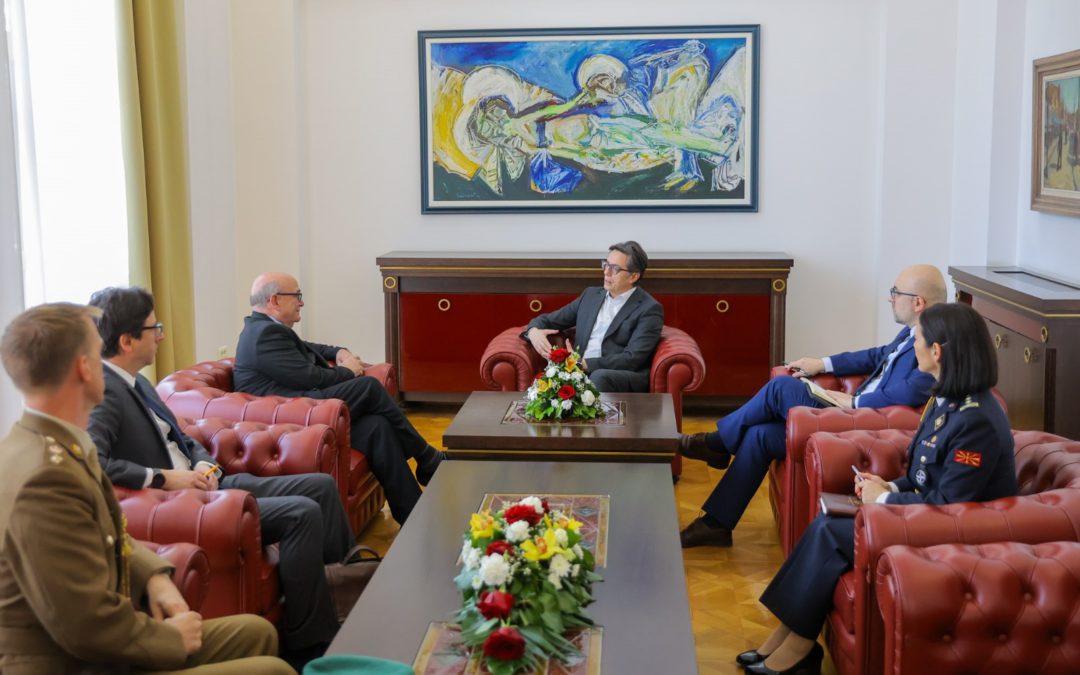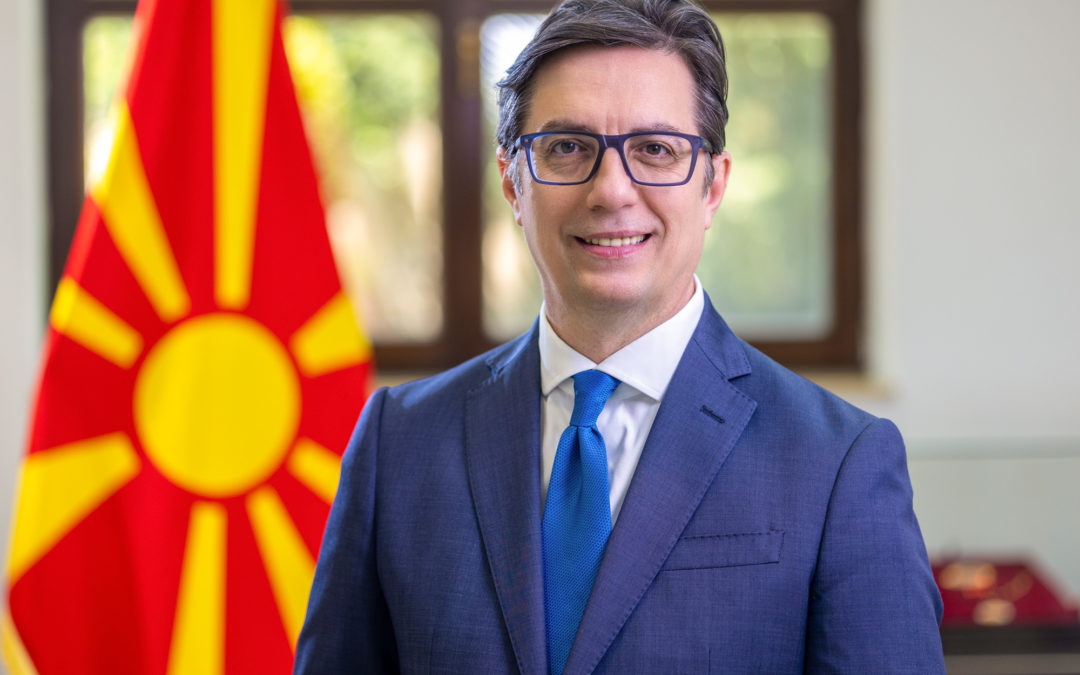The President of the Republic of North Macedonia, Stevo Pendarovski, addressed today the jubilee International Conference on European Integration, this year on Climate Change: Challenges and Building Resistance, organized by the University American College in Skopje.
Please find below the full text of President Pendarovski’s address.
Dear Attendees,
Ladies and Gentlemen,
Not only as President, but, above all, as your academic colleague, I am honored to address the jubilee Annual International Conference on European Integration.
This online conference is being held during the global Covid-19 pandemic. Not only should the pandemic defocus us from addressing climate change, but it could also give us a new perspective on the issue.
The pandemic has led to a slowdown or to a complete closure of some industries, production processes and transportation in many parts of the world. In the short term, it has a positive effect on the environment. Oxford Analytics estimates that “carbon dioxide emissions will be significantly reduced in 2020 as a result of the prolonged cessation of many economic activities”. NASA and European Space Agency satellites have confirmed that, only in the case of the People’s Republic of China, nitrogen dioxide level (NO2) is reduced by 40%.
These data unequivocally confirm two things. First, that man is responsible for the emission of carbon dioxide into the atmosphere. And second, that nature can still, in a relatively short time, restore part of the disturbed balance. Of course, if we allow it.
However, many experts rightly warn that it is too early to celebrate. The world is yet to face economic crisis in which many governments and companies will compromise at the expense of the environmental and climate agenda. The World Economic Forum has also confirmed in its April 2020 Report that although many in the pandemic see a possibility of decisive steps to restructure economies, industries, technology and lifestyle, in line with the principles of sustainable development, priority will be given to businesses and jobs. This means that we will restore the imbalance in a very short time.
The renowned Canadian activist Naomi Klein rightly notes that the country’s dominant economic system and the planet earth system are in conflict. In order the fragile climate balance not to collapse, it is necessary to reduce the use of resources. But, in order the dominant economic model not to collapse, it is necessary to continue the economic expansion. Only one of these two laws can be changed, and in the long run it will not be the natural laws.
As long as fossil fuels are at the heart of the global energy system, we will have an unsustainable economic model of growth and development. Therefore, our economic and technical-technological development must become climate neutral. We do not have much time to accomplish this task, and the future of our planet will depend on our success, as will the quality of life of the future generations. We need to focus on developing and supporting innovative environmental approaches, sustainable development strategies and using new technologies for climate action.
Ladies and Gentlemen,
Science, technology, innovation are a very important part of the solution, but they are not the whole solution. If we hope that the new technology will allow us to continue our old habits, we will only make things worse. To build resilience to the effects of climate change, in addition to sustainable technology, we need sustainable habits. And habits are acquired and spread through education. International agreements and conventions on sustainable development and climate action, including the 2030 United Nations Sustainable Development Goals and the Paris Climate Agreement, emphasize the same thing – integrated environmental education is necessary to raise social awareness and establish sustainable habits.
If we really want to build sustainable habits, education must promote sustainability ethics. Climate ethics cannot be reduced to scientific knowledge and technological solutions only. We must awaken individual and collective consciousness and conscience for common good. It requires a holistic approach. Here are some elements of such an approach.
First, synergy between natural and social sciences is needed. Climate change is not just a physical phenomenon. With our development model, we have encouraged climate change. Therefore, as a hybrid, physical-cultural phenomenon, climate change should be addressed not only by environmentalists and economists, but also by sociologists, anthropologists, ethicists, philosophers… Only with interdisciplinary approach will we develop climate ethics, which will help us properly understand our attitude towards the planet, towards people, and towards the future.
Second, solidarity is needed in society. In every country, including ours, climate action should cover as many segments of society as possible. That is why I supported the “Don’t Ignore, React!” platform, which brings together experts from different fields, civic activists, environmentalists, public opinion creators, the media and individuals, to address the problems we face as a community; to direct questions to appropriate institutions; and to provoke solutions for a better environment and quality of life.
Third, solidarity between states is necessary. Climate change is a challenge that exceeds the capacity of each individual state. We have signed and ratified the Paris Agreement on Climate Change. According to the so-called Green Deal, the European Commission has pledged to make Europe the first climate-neutral continent by 2050. Moreover, during my official visit to Austria last year, I supported the climate initiative of the Austrian President, Alexander Van der Bellen.
Fourth, trans-generation solidarity is necessary. Our generation must give up some of the comforts in life so that future generations can live at all. When deciding on our climate change policies, we must also think about what is good not only for this but for the next few generations.
That is a major challenge for politics as we know it. Politicians and governments are not always ready to support unpopular policies whose positive results will be felt in the long run when someone else is in power. However, climate change and pollution cannot be daily political issues.
Therefore, as President, I have proposed that we pursue a supra-party state strategy to mitigate the negative effects of this phenomenon. I supported the commitment of the civil society sector for increased state budget funds for environmental protection in order to get closer to the average of the European Union member states. Furthermore, although it was in its final stages, before I signed the Defense Strategy, I asked the competent authorities to supplement it with a special section on environmental safety measures and activities.
In December last year, I convened a meeting of the Security Council to discuss air pollution and environmental protection for the first time. The session was also attended by representatives of civil society organizations who had the opportunity to discuss this important issue directly with the members of the Council and to propose measures for greater environmental protection and tackling pollution.
I believe that with social, political and international solidarity, we will be able to change some of our everyday, production and consumer habits so that we can reduce at least some of the causes of climate change.
Therefore, at the end, let me once again commend on this conference that discusses the existing risks in this area and the solutions to mitigate the negative effects of climate change.
Thank you.

